21, March 2024
Bishops of Yaoundé Ecclesiastical Province discuss Church and the digital world 0
The first ordinary annual session of the Bishops’ Conference of the Ecclesiastical Province of Yaoundé in Cameroon, was held recently. “The Church and the digital world: issues and challenges for evangelization,” was the theme of the plenary. The assembly took place at the Pastoral Centre of Saint Joseph in the town of Kribi, a beach resort and sea port in Southwestern Cameroon.
Throughout their discussions, the Bishops belonging to the of the Ecclesiastical Province of Yaoundé agreed on the need for the local Church to integrate the digital culture into work of evangelization, because, “digital technologies offers pastoral opportunities that open up infinite gateways to Christian life,” they said.
Christianising the digital and digitising Christianity
With reference to digital technologies, Archbishop Jean Mbarga, the Metropolitan of Yaoundé Archdiocese stressed that “the Church needs to be at the rendezvous of history, and above all at its helm.” To this end, he continued, “our commitment from now on will be to Christianise the digital and to digitalise Christianity … These are openings that give rise to pastoral avenues that open gateways of Christian lives to you, the people of God, and that pour graces into the heart of a world that wants only to materialise and institute atheism,” said the prelate of Yaoundé.
Investing in innovation
The Archbishop of Yaoundé praised the City of Kribi as well as the Diocese of Kribi for leading the way in investing in innovation and creativity. He urged young people to seize the immense opportunities for economic development currently being offered by the City of Kribi, “a modern city located by the sea, bearing rich hopes, but also under the prism of problems linked to urbanization,” he said.
Source: Vatican News
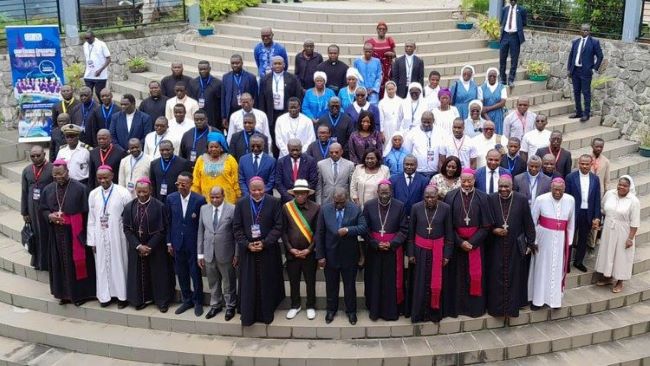
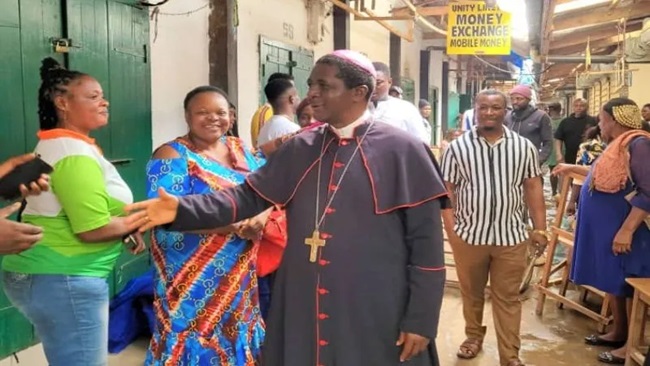

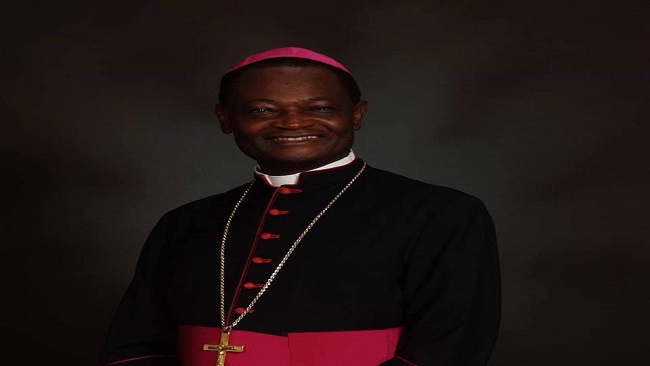
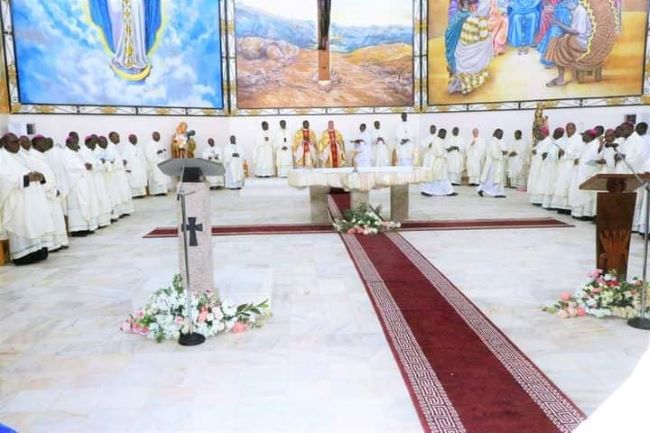
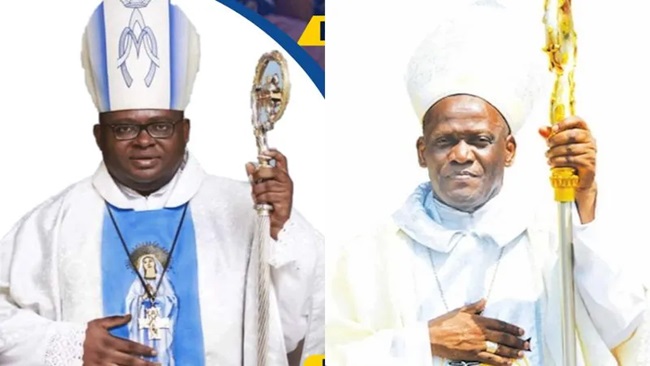
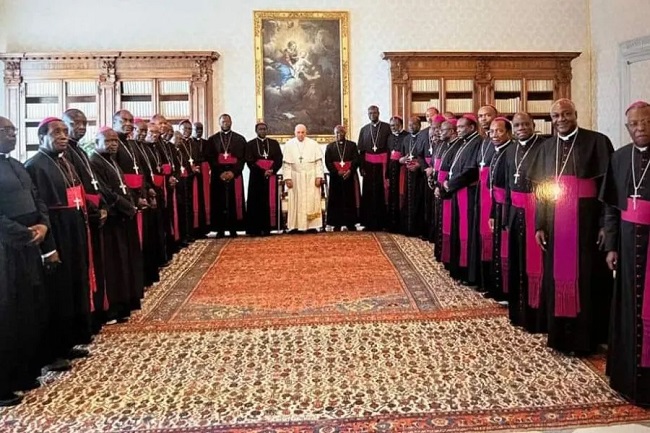
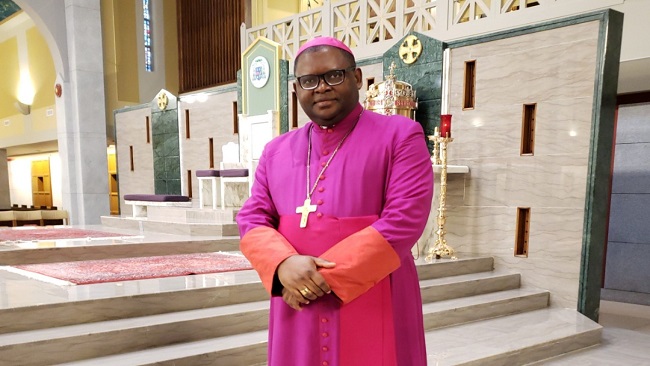
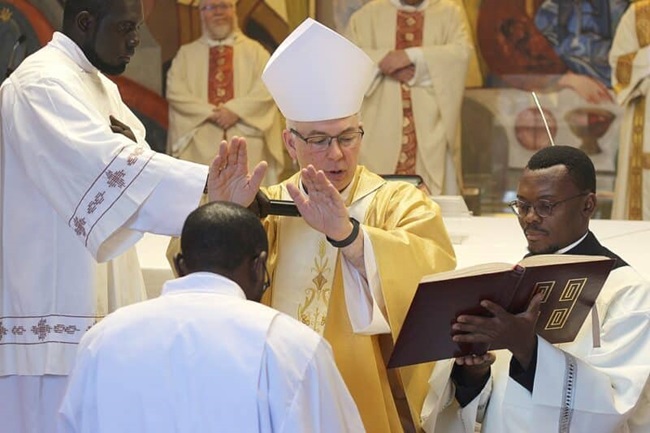











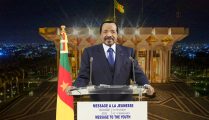






7, April 2024
Yaoundé: Cardinal Sarah urges 12 newly ordained Catholic Priests in Obala Diocese to “be attentive to the flock” 0
Robert Cardinal Sarah has called upon the 12 newly ordained Priests for the Catholic Diocese of Obala in Cameroon to be attentive to the needs of the people of God under their pastoral care.
In his homily during the Friday, April 5 Priestly ordination, Cardinal Sarah hailed the vocation to the Priesthood and called upon the 12 Deacons to put prayer at the center of the Priestly ministry.
“Priesthood is the most wonderful and greatest gift that God has given to our humanity. To be a Priest is therefore to be attentive to the flock, which the Holy Spirit has appointed us to shepherd in the Church of God, in profound communion with your Bishop,” he said during the event that was held at the Playground of Obala Council.
To be a Priest, the Guinean-born Cardinal who, until his retirement in February 2021, was serving as Prefect of the Vatican Congregation for Divine Worship and the Discipline of the Sacraments said, “is an immense privilege that makes and helps us to continue the work of evangelization initiated by Jesus.”
“To be a Priest is to become Jesus Christ himself. It means extending his saving presence among mankind. It means striving every day to bring Jesus’ suffering and death to our lives, and to radiate his presence,” Cardinal Sarah said during the April 5 Priestly Ordination event.
Priests have the role of facilitating the recognition of God as critical to the world in general and to the human person in person, the Cardinal said.
To be a Priest, he explained, “means restoring God’s central place in the world, for a world without God is a world without hope. The Priest makes God visible; the Priest is the sign that reminds us of God’s primacy in a world that is increasingly frivolous, indifferent and even hostile to Jesus Christ, his Gospel and his Church.”
The Cardinal, who arrived in Cameroon on Tuesday, April 2 for a weeklong visit further said, “The priesthood was instituted to preach the Gospel and restore communion between God and man through the Eucharistic sacrifice and prayer. The Priesthood has its deepest source in the supreme and exclusive love of Christ.”
“Shepherding my sheep is indeed an act of love. Only if we love Jesus Christ exclusively do we have the authority and responsibility to shepherd God’s people,” Cardinal Sarah said.
It is in following the example of Jesus Christ, who gave “His whole life for the care of His sheep that we confirm that Priests love God with all their heart, soul and strength,” the 78-year-old Cardinal, who started his Episcopal Ministry in December 1979 as Archbishop of Guinea’s Conakry Archdiocese said.